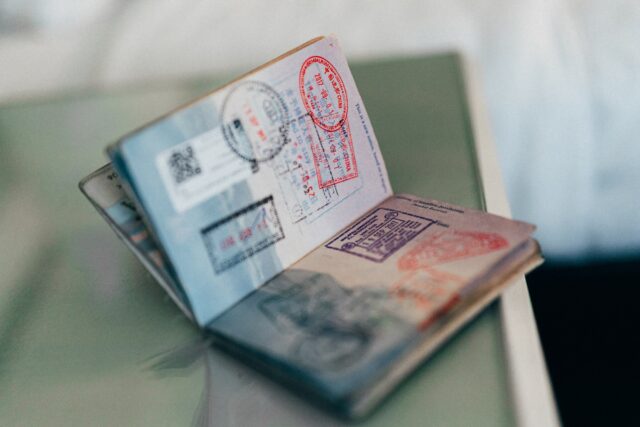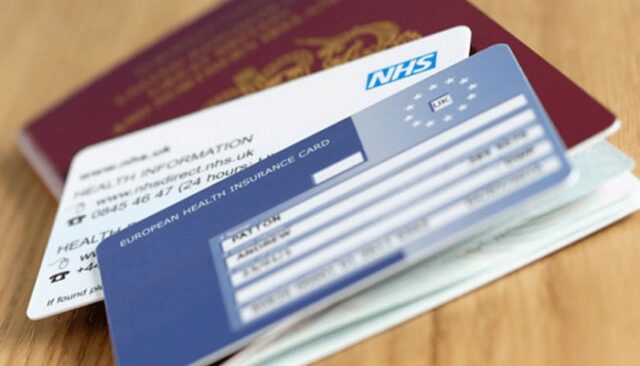
Do you know all about the Health and Care Visa? If not, we’re going to help you get your answers in this article! The Health and Care Visa enables applicants to reside and work in the United Kingdom at a reduced cost. You and your dependents will not be required to pay the Immigration Health Surcharge.
A visa that is valid for three years costs £232. Visas valid for more than three years cost a total of £464. Heads up, however, as these prices can change. You can also read this detailed guide and get your questions answered with the skilled worker visa in the UK. With them, any legal questions will be resolved in the shortest time frame!
The Skilled Worker Visa Health Surcharge: Top 5 Things That You Should Know

What is the Immigration Health Surcharge?
The Immigration Health Surcharge makes the majority of NHS services free for non-EEA immigrants in the United Kingdom. You will be treated equally with British citizens and those with settled status, despite the fact that you paid for the service.
The NHS Surcharge was implemented in 2015 to reduce the prevalence of international medical travel. In 2016, the government spent 0.3% of its budget on medical care for British citizens receiving treatment abroad.
The National Health Service is available to you for the duration of your visa. In the event that your visa is suspended or revoked, you will forfeit your protection and be required to pay for any NHS services you use.
What Are the Health and Care Worker Visa Requirements?

Applicants for a Health Care Work Visa under the Skilled Worker Category must satisfy a certain list of requirements. Those are:
- Possess a valid Certificate of Sponsorship (CoS) issued by a registered sponsor in the United Kingdom
- You should be able to demonstrate your ability to travel by submitting a record of your activities over the past five years
- Have a job offer that satisfies the requirements and pays at least the minimum wage
- Have funds in your own funds to support yourself while in the United Kingdom
- You should speak English at a Native level
Once you fill out all the paperwork and you meet these requirements, it is up to your prospective employer to confirm your eligibility for the Health and Care Worker visa. You will be able to accurately complete the visa application if you do so.
Also, in the note section of the CoS, your employer must explain how, in this new role, you will satisfy the requirements for a visa-eligible position.
How Pricey Is This Visa?
When requesting a visa for a skilled laborer, evidence of adequate financial means is required. The application fee ranges from £625 to £1,423, depending on the applicant’s specific circumstances. Not too sure how much you will have to give out of your own pocket? The annual average of healthcare surcharges is £624.
However & once in the United Kingdom, you must find means to survive. You must have at least £1,270 on board. If you are applying for a position that is in high demand, you will incur a reduced application fee. Because you will not be working in a shortage occupation, you will be required to pay £625 for your visa and £624 annually for healthcare. Your visa application has now cost you a total of $1,873.
If your employer cannot cover your living expenses in the United Kingdom, you will also be required to provide proof that you have at least £1,270 in your bank account.
What Does the Immigration Health Surcharge Pay For?

The Immigration Health Surcharge was implemented by the UK government so that non-EEA immigrants who enter the country for more than six months to work, study, or visit family pay a “fair contribution towards the costs of the National Health Service.” This has helped regulate the system and has opened up a plethora of options for non-UK citizens.
In lieu of a “pay as you go” private system, non-EEA visa applicants who require NHS services during their stay in the UK must pay a set charge. This fee is in addition to what you must pay the Immigration Service of the Home Office. The government asserts that the IHS amount is intended to cover the estimated cost of providing the NHS to each visa applicant.
IHS profits are distributed to the government’s general resources. Has it always been like this? Well, not really. Since 2015, the immigrant health surcharge has been in effect, and it is expected to generate up to a billion dollars in revenue, all of which will be distributed to state and local health departments.
Which Visa Applicants Are Exempt From Paying the Immigration Health Surcharge?

There are always ways to go around the system, and there are always exemptions that one might follow. The most notable exemptions from the immigration health surcharge are:
- Applications for dependent visas where the principal visa applicant is applying for a health and care worker visa.
- Only applications for the health and care worker visa, not the skilled worker visa route it falls under, are exempt from the fee.
- Applications for asylum or humanitarian protection.
- Other less prevalent routes are exempt, including diplomats and some military applicants.
If the petitioner is applying from outside the United Kingdom for a visa with a duration of six months or less, the immigration health surcharge is waived. Visitor visa and fiancé visa applicants are therefore exempt from the immigration health surcharge.
Are You Ready to Obtain Your Visa?
And there you have it! Simply apply and follow these tips and tricks if you want to enjoy the best possible outcome, regarding your personal status & situation. With the right legal team you will get all of your questions answered, so don’t worry as you are in great hands with our legal team.







